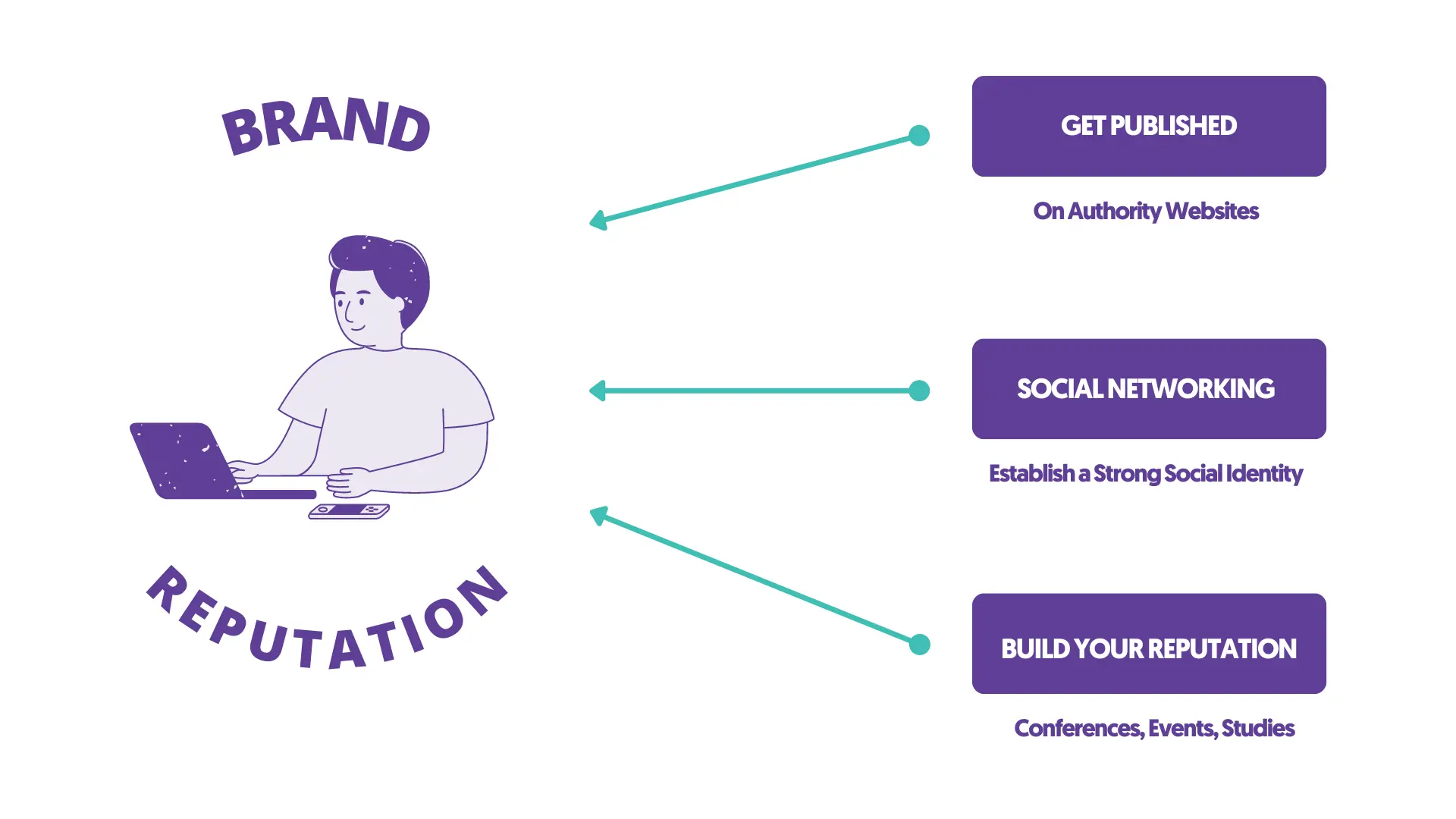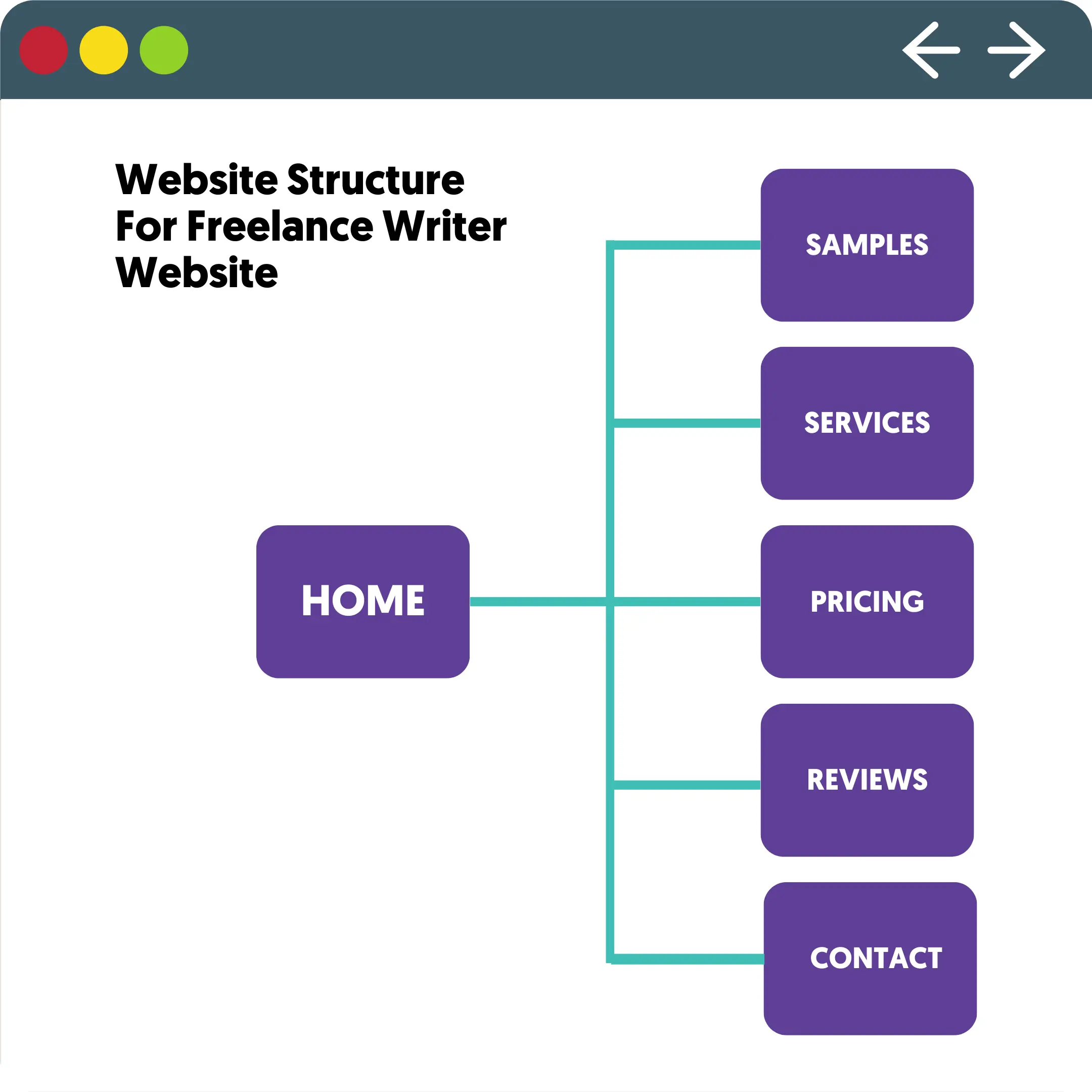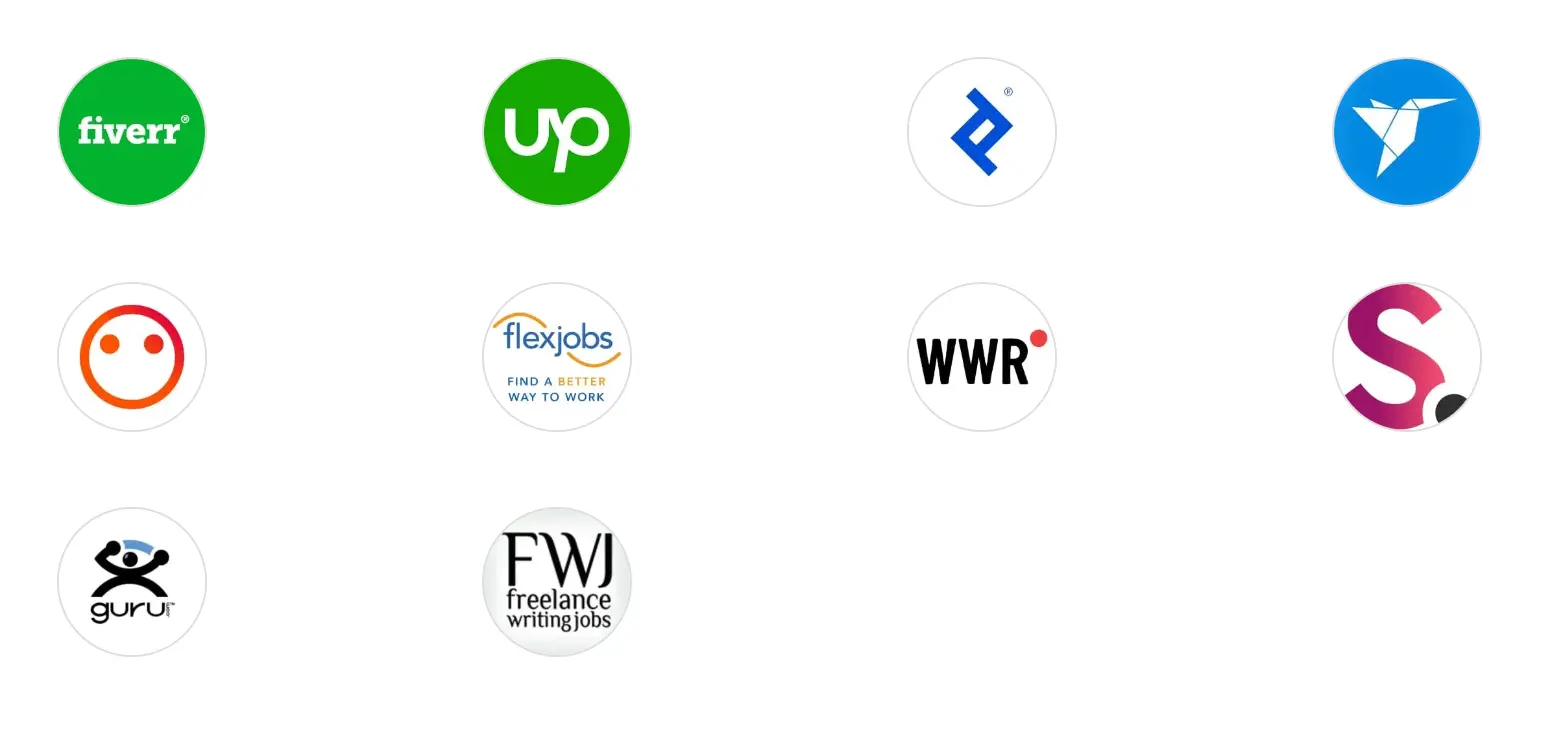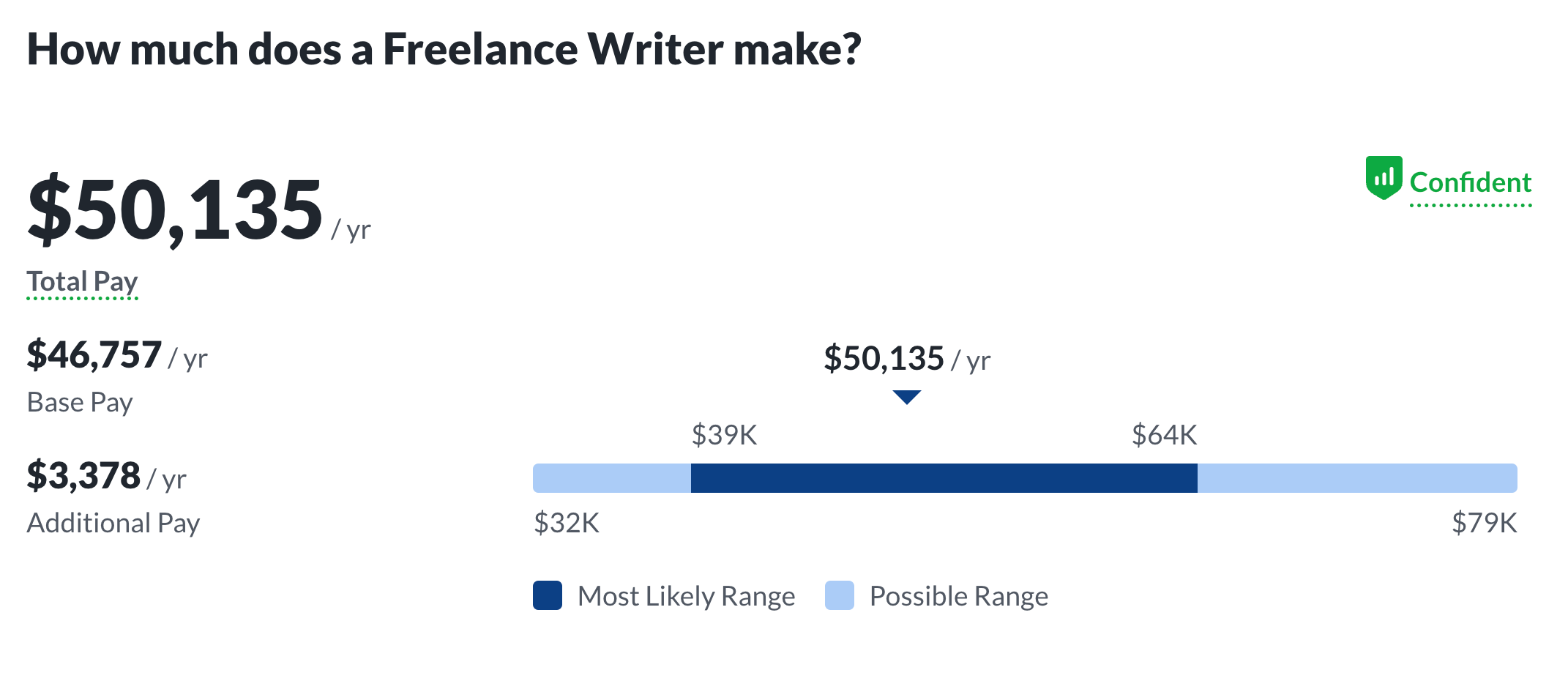Is freelance writing a good job when AI chatbots can write content on any topic? Can you still make a living writing content and working as a freelancer?
The answer to both questions is YES. Despite the rise of artificially created content, there is still room for expert human writers to make a career in content marketing.
Expertise is the key to success and failure. Writers with experience and expertise in a topic can offer a depth of insight and creativity that technology has yet to master.
This makes them an important asset for any company that wants to publish high-quality and people-first content.
In this comprehensive guide, you’ll learn how to start a career as a freelance writer from scratch without any prior experience.
1. What Does a Freelance Writer Do?
This is a question I’ve encountered frequently throughout almost a decade of freelance writing. Many people still assume freelance writing is just another word for “blogging.”
However, a freelance writer’s role can be incredibly diverse.
A freelance writer can produce dozens of different types of content, from copy for website pages (such as About, Home, and Landing pages) to ad copy for PPC campaigns, video scripts, social media posts, and even email templates.

Writing is only one part of the freelance writing role; many writers also invest in:
- Research: Research is a crucial part of any freelance writing role. You’ll need to ensure you’re creating content relevant to your chosen niche and interesting to your target audience. In-depth research ensures you can craft content that addresses every part of the customer journey and drives results for brands.
- Search engine optimization: Most freelance writers also specialize in search engine optimization. They know how to choose the right keywords and add them effectively to the content. They also understand how to format content for search engines and write meta descriptions, alt tags, and engaging headings.
- Consulting and guidance: As a freelance writer, you’ll be an important member of a comprehensive marketing team. You may be asked to offer guidance on which types of content need to be produced for a business. You may also need to share reports and presentations based on your research.
- Brand development: Freelance writers play a significant role in developing the brands of the businesses they work with. They help craft a company’s tone of voice and showcase a unique personality through the words they share.
- Collaboration with other content creators: Many freelance writers work hand-in-hand with graphic designers, video producers, podcasters, and countless other creators. You might write scripts for video pieces or assist in creating infographics, courses, webinars, and other forms of multimedia content.
2. How to Become a Freelance Writer
These are the 10 steps to follow to start a career as a freelance writer.
- Practice Your Writing Skills
- Master SEO Content Writing
- Build Expertise on Selected Topics
- Work on Your Reputation
- Create a Website and Portfolio
- Setup Your Home Office
- Set Competitive Freelance Writing Rates
- Establish Profiles on Freelance Platforms
- Create Templates for Customer Communication
- Create a Strategy For Client Retention and Repeat Business
1. Practice Your Writing Skills
While many skills are required to be an effective freelance writer, few are more important than developing a way with words.
You might already have a talent for storytelling and a good knowledge of the English language, but it takes work to master this art form truly.
You can begin improving your writing skills in various ways, but the easiest option is to simply practice writing.
Follow other writers in your niche and challenge yourself to write better versions of whatever they produce, with more insights, actionable information, and research.
Alongside actively writing content, I’d also recommend practicing your research skills. In other words, learn as much as possible about the industry you want to write for.
Reading content produced by other market leaders is an excellent way to discover new ways of writing, and it also helps you to expand your vocabulary.
For more information, read our guide on content writing.
2. Master SEO Content Writing
Freelance writing in the digital age often goes hand-in-hand with Search Engine Optimization (SEO).
Whether you’re writing product pages, blogs, or landing pages, it’s important to understand how search engines evaluate and rank content.
Following Google's guidelines is a good way to start building your SEO skills.
Use these guidelines to evaluate your work whenever you write something new. To outrank the competition, ensure your content is helpful, reliable, and people-first.

Use your own blog to practice your SEO techniques before you start working with clients.
When creating new content, ask yourself whether you deliver value to your readers with easy-to-read, insightful advice.
To become an expert in SEO content writing, read our guides below.
3. Build Expertise on Selected Topics
In a competitive space like the freelance writing industry, I know how tempting it can be to take a “generalist” approach with your career.
It’s easy to assume you’ll be able to earn more clients if you’re willing to write about any topic.
However, a generalist approach can make building a memorable professional brand extremely difficult.
In a world where AI solutions like ChatGPT can generate basic, high-level articles on just about anything, the writers who thrive will be the ones with genuine expertise.
Focusing on a specific niche can help you develop a deeper understanding of the audience you want to reach.

The more experience you develop in your niche, the more you can enhance your content with personal, authentic insights.
Plus, taking a focused approach to freelance writing can help you build a credible brand as a thought leader.
The more people see you as a true expert in your field, the more they’ll be willing to pay you to create content that’s a cut above the rest.
The good news is there are plenty of different niches to choose from. The right option for you will depend on your existing experience, your background, and your passions.
For instance, if you’re starting your freelance writing career as a tech sales expert after a long period, you might focus on the technology landscape.
You can also build your specialty around a specific type of content writing. For instance, you might be particularly good at writing powerful email campaigns, creating scripts for videos, or producing whitepapers for B2B companies.
4. Work on Your Reputation
Your reputation is everything in the freelance writing world. It needs to convince potential clients that you can produce more in-depth, powerful, and valuable content than any generative AI system or other writers.

People should be able to search on Google for a specific topic and see your name attributed to a range of high-quality articles and content pieces.
Although it takes time to develop a strong reputation, you can boost your chances of success by:
- Producing content for other sites: The more you can get your name published on well-known sites and platforms in your industry, the more you’ll stand out as a professional. Consider pitching guest blogs and other content to sites with a strong connection to your target audience.
- Building your own blog: Your blog or website is one of the first places your clients will look when attempting to discern your value as a writer. A high-quality blog, filled with different types of engaging content, will give you an excellent opportunity to demonstrate your skills.
- Networking with other experts: The connections you make as a freelance writer can also help to strengthen your reputation. Joining writing groups and networks is a great way to expand your skills and find new potential partners to work with. You can also ask your network to endorse your skills on platforms like LinkedIn or ask them to write reviews you can show on your website.
Pay attention to your reputation as it develops over time. Search for your name regularly to determine what people see when they’re looking for you, and remember to be cautious about what you share online.
Avoid connecting yourself to any low-quality publications, and keep your social media profiles professional.
5. Create a Website and Portfolio
A website or portfolio is another excellent way to enhance your reputation and ensure potential clients can find and contact you.
Most employers searching for a freelance writer will ask for examples of your work before they even consider discussing your rates.
A portfolio allows you to highlight all of your best content in one convenient place. You can use it to show off work you’re proud of.
Alongside samples of your work, you can share stories about how you created the content and the results it achieved. Providing insights into things like SEO metrics and conversion rates will help to validate the quality of your work.

Your website and portfolio should include examples of your work and any other information your clients might need before they can hire you.
For instance, you can create the following:
- A contact page: Provide plenty of ways for potential customers to contact you. Your contact page might include a form customers can fill out or your email address, phone number, and other contact details. It can also include links to your social media profiles, so customers can “follow” you online.
- A services page: Services pages provide possible customers with all the information they need about the writing solutions you can offer. You can outline what kind of content you produce, your availability, and even your processes.
- A pricing page: While the price you give each customer for their project may vary depending on several factors, most customers will want a basic insight into how much you charge. Your pricing page can include information on your per-word or per-hour pricing structure and any deals you can offer.
Don’t forget to include plenty of social proof on your website too. Reviews and testimonials from happy customers will help you to seem more trustworthy and reliable.
You can even create a page to showcase certificates or credentials you’ve earned in the writing space.
6. Setup Your Home Office
There are plenty of things to love about freelance work. You get to be your own boss, set your own prices, and even determine which clients you want to work with.

Perhaps one of the most appealing things about this career path for most creators is the ability to work comfortably from home.
However, it’s worth remembering your office environment will have a direct impact on your productivity.
Everything from the ergonomic furniture you use to the air quality and lighting in your home office can influence your creative flow.
With this in mind, invest in building a space where you can really thrive when working. Choose a dedicated room in your house away from distractions like pets, family members, and your television.
You’ll need to ensure you have the following:
- A desk space: Create a dedicated desk space where you can work comfortably and consistently. Don’t just write from your sofa. Invest in an ergonomic chair and a standing desk.
- The right hardware: The most important thing you’ll need as a freelance writer is a computer or laptop. However, you may also need to invest in networking tools to improve your internet connection, a webcam for communicating with clients, and a set of headphones. I recommend noise-canceling headsets to maintain focus.
- Crucial software: Think about the software that might help you to be more effective in your role. You’ll need a word processing tool, but you might also want to experiment with software like Grammarly for editing and proofing or tools like SEMrush for keyword research.
7. Set Competitive Freelance Writing Rates
Once you have everything set up in your home office, it’s time to start thinking about your pricing strategy. There are numerous ways to earn an income as a freelance writer.
Some people charge per word, while others offer a flat hourly fee for different kinds of writing.
You could also offer customers project-based pricing, which varies according to their specific needs, or monthly retainers.
The rates in the writing world can vary depending on many factors, from experience to the type of content you produce.
Some beginners charge anywhere up to $0.10 per word for specific writing tasks, while more advanced writers can charge as much as $1 per word.
The best way to choose the right pricing structure is to do your research. Find out what other writers in your niche charge by checking listings on freelance writing platforms like Fiverr.
Or consider asking other writers about their pricing structure on social media groups and forums dedicated to copywriting.
Be flexible with your rates, and remember to adjust them over time based on your experience, track record, and the changing marketplace.
8. Establish Profiles on Freelance Platforms
Now you know what you’ll be charging your clients, it’s time to start finding prospective leads for your freelance writing business.
Becoming a freelance writer means spending a lot of time searching for new work opportunities and clients.
There are a few ways you can find potential customers in this world, such as joining social media groups for copywriters or looking for job listings on channels like LinkedIn.
However, the easiest option for most beginners is to set up a profile on freelance platforms.

There are plenty of excellent freelance platforms out there, including Fiverr, Upwork, and Freelancer.com.
The key to success on any of them is making sure you showcase your skills effectively. Include a link to your portfolio on your profile, and share as much information about your experience as possible.
Once you have a profile, start bidding for or applying for work as often as possible.
Focus on cultivating a strong reputation to drive future sales. Many channels, like Upwork, allow customers to rate their writers after purchasing. A strong rating will make you more appealing to future clients.
9. Create Templates for Customer Communication
As a freelance writer, most of your time will be spent researching, creating, and editing content. However, you’ll also need to ensure you’re constantly communicating and collaborating with your clients.
Since client communication can take up much time, it’s worth searching for ways to streamline the process.
Templates can be extremely helpful if you want to avoid constantly writing out long emails and responding to common questions.
You can create templates that cover the following:
- Your service and pricing structure: A comprehensive template covering the prices you charge for different types of content will be crucial when initially interacting with customers. Make sure you outline clearly what each service or package includes, such as any edits, reworks, or search engine optimization.
- Payment requests: After completing a project, you must follow up with an invoice and a friendly payment request. Ensure you include information on how you accept payments and the due date for any transactions.
- Follow-up emails: Follow-up emails in the freelance writing world might cover things like requests for additional content briefs or information or inquiries about additional work. You could also send follow-up emails asking for reviews, testimonials, or feedback about your service.
10. Create a Strategy For Client Retention and Repeat Business
Finally, although freelance writers may spend a lot of time seeking out new clients, their priority should be retaining the customers they already have.
Ultimately, it’s much easier and more profitable to continue working with the same clients than to spend all of your time looking for new work.
Moreover, if you can effectively cultivate a community of happy customers, their reviews and advocacy will help you earn more customers.
To boost your chances of retaining clients:
- Deliver amazing customer service: Few things matter more than amazing customer service if you want to retain clients. Always communicate promptly with your clients, and strive to address any issues they might have.
- Commit to constantly offering more value: Make sure you always find ways to improve your service. Expanding your education with courses and programs can make you more valuable to your clients. You can also consider offering additional services, like help to manage WordPress or website backends, writing copy for PPC ads, or reviewing and reporting on campaigns.
- Offer deals to increase loyalty: A great deal can be a great way to boost client loyalty. For instance, offer customers a discount if they’re willing to agree to use your services over a long-term period. Consider offering something for “free” to your VIP customers, such as SEO research or monthly keyword reports.
3. How Much Does Freelance Writing Pay?
The amount you earn as a freelance writer will vary depending on several factors. Your earnings will depend on your pricing structure, your level of experience, and even the type of writing services you offer.

However, freelance writing can be very lucrative. According to Indeed, the average Freelance writer earns around $22.13 per hour.
Glassdoor suggests that Freelance writers, even at the start of their career, can earn around $50,135 per year.
4. How to Get Hired as a Freelance Writer
Getting hired as a freelance writer takes time, focus, and persistence. The good news is there are plenty of ways to look for opportunities in the online and even offline world. Offline, you can attend writing workshops, events, and conferences to network with potential partners and clients. Online, you can try the following:
- Joining freelance websites: There are plenty of freelance platforms available today which list potential opportunities for writers. You can create a profile on these platforms to either apply for jobs or promote yourself to potential customers.
- Searching on freelance job boards: Job boards and channels like LinkedIn regularly showcase new opportunities for all kinds of freelancers. Search through these boards for roles relevant to your expertise.
- Sending emails to reputable companies: If there’s a company you desperately want to work with, sending emails or messages to these brands could be a great way to find new work opportunities. Remember to pitch your benefits as a freelance writer and why they should consider hiring you.
Promoting yourself regularly is important too. SEO-optimized content published on your website will help you to attract customers from the search engine results pages.
Read our guide below on the best websites freelancers can use to find work.
5. Is Freelance Writing a Good Job?
Freelance writing can be a fantastic job opportunity. Even in a world where artificial intelligence is churning out more content every day, companies are still searching for expertise that emotional intelligence bots simply can’t provide.
If you can demonstrate your value as a human writer with incredible experience and skills, you can still earn a significant income as a freelance writer.
This role will allow you to work in an industry you’re passionate about, connect with new people, and constantly expand your skills.
If you have a way with words and you know how to sell yourself as an expert in your field, you could have an amazing career as a freelance writer.
6. Other Freelancing Jobs
Remember, writing is just one of the roles you can pursue as a freelancer. In today’s digital world, the “creator economy” is thriving, giving professionals new opportunities to seek out employment in a variety of different spaces.
Depending on your skills, you can consider roles in social media marketing, graphic design, search engine optimization, or digital marketing freelancing.
You can start exploring more options by reading these resources.



